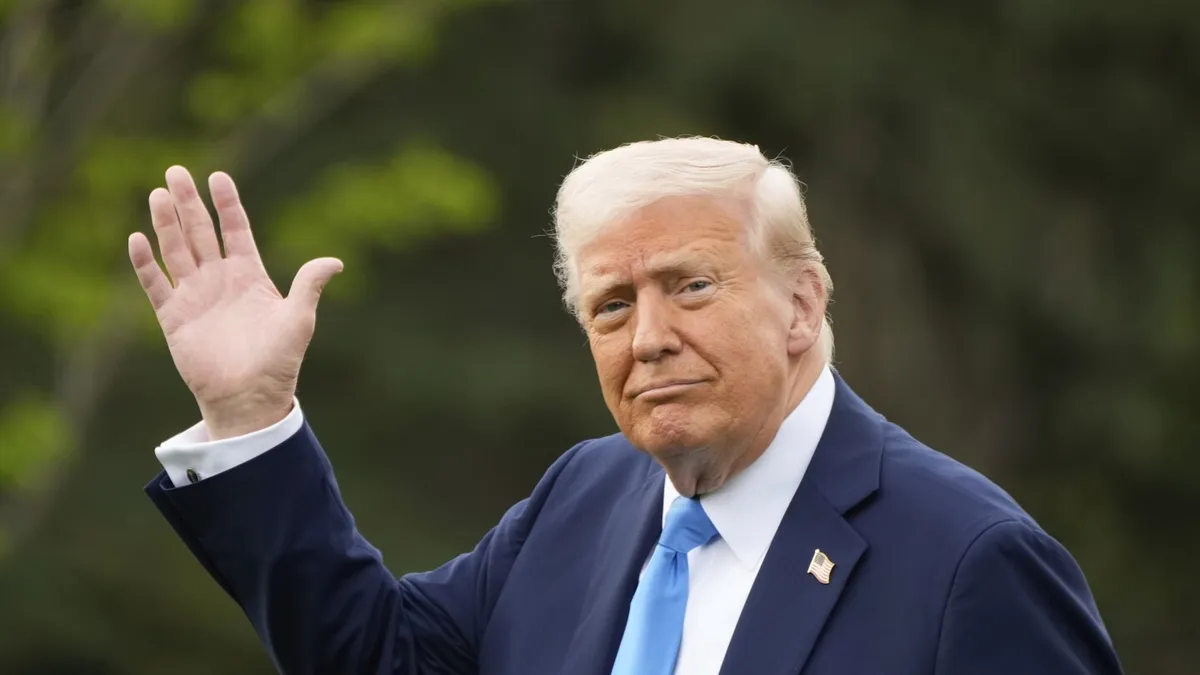
In a bold move that reflects his administration's approach to dissent and retribution, President Donald Trump issued an executive order that specifically targeted one of the nation’s most prestigious law firms, Paul Weiss. This directive is indicative of Trump's broader strategy to exert influence beyond the government, impacting various sectors of American life, from individuals who have opposed him to powerful institutions.
Founded in 1875, Paul Weiss has a long history of championing civil rights and serving as legal counsel for influential corporate entities. However, the firm found itself in jeopardy due to the actions of a former attorney who conducted an investigation into Trump while serving as a Manhattan prosecutor. In response, Trump ordered a review of federal security clearances for the firm’s attorneys, threatened to terminate federal contracts, and restricted employee access to federal buildings.
However, this decree was overturned in a manner characteristic of Trump's negotiation style: through a deal. After a meeting at the White House with the firm’s chairman, Paul Weiss agreed to undertake $40 million worth of legal work supporting administration initiatives, leading to the rescinding of the executive order. This resolution sparked significant backlash within the legal community, which viewed it as a capitulation rather than a successful negotiation.
The incident with Paul Weiss exemplified Trump’s use of presidential power to challenge dissent and punish perceived adversaries. This pattern extended to other institutions, including Columbia University, which disclosed policy changes under the looming threat of losing billions in federal funding. Additionally, notable law firms such as Skadden, Arps, Slate, Meagher & Flom were compelled to negotiate settlements to avoid similar executive orders.
Ty Cobb, a former White House lawyer during Trump’s first term, remarked, “The more of them that cave, the more extortion that invites.” This sentiment highlights the fears that many have regarding the potential repercussions when institutions fail to align with Trump’s expectations.
Some within the conservative legal community defend Trump’s actions, arguing that it is within his rights to determine which firms receive federal contracts. Jay Town, a former U.S. attorney, stated, “The president, as the commander in chief, can determine who gets a clearance and who doesn’t.” This perspective supports Trump's authority to exert influence over which law firms are considered trustworthy.
Despite some firms capitulating, others have resisted. Two law firms, following the Paul Weiss deal, initiated lawsuits to challenge the executive orders. However, many sanctioned firms found themselves at odds with the White House, primarily due to their connections with prosecutors who had previously investigated Trump.
Trump’s approach was foreshadowed during his campaign when he proclaimed, “For those who have been wronged and betrayed, I am your retribution.” This sentiment has manifested in various actions against legal professionals and institutions that have crossed him. Following four federal and state indictments, Trump’s administration quickly fired members of special counsel Jack Smith’s team and targeted law firms representing them.
Notably, the firm Covington & Burling faced punitive measures for its representation of Smith, while Perkins Coie was similarly punished for its role in the opposition research dossier on Trump. Perkins Coie sought to challenge the order with aggressive legal representation, but the situation highlighted the precarious nature of legal practice under Trump’s administration.
Initially, Paul Weiss considered litigation against the executive order. However, firm chairman Brad Karp noted in an email that even a legal victory would not shield the firm from being perceived as “persona non grata” with the administration. The fear of losing significant clients prompted the firm to accept a deal, pledging pro bono legal services for causes such as combating antisemitism.
This decision led to widespread criticism from the legal community, with over 140 alumni of Paul Weiss signing a letter denouncing the firm’s capitulation. They argued that the firm’s actions compromised the independence of the legal profession, echoing sentiments reminiscent of the McCarthy era.
The fallout from Trump’s executive orders did not stop with Paul Weiss. Following its deal, other firms like Jenner & Block and WilmerHale faced similar pressures, with both eventually suing to challenge the orders. Despite judicial pushback against enforcement, the environment created by Trump’s actions has left many in the legal community feeling vulnerable.
In academia, the Trump administration continued its aggressive stance, suspending $175 million in federal funding for The University of Pennsylvania over unrelated controversies, further illustrating the administration’s willingness to wield financial power as leverage. The University of Columbia also faced scrutiny, leading to significant policy changes in response to threats of funding cuts.
Trump’s influence extended to media companies as well. Before taking office, ABC News and Meta (the parent company of Facebook) reached settlements with Trump to resolve lawsuits that could have lingered into his presidency. Such actions signal the extent to which Trump’s administration has sought to control narratives and retaliate against perceived enemies.
As Trump’s presidency unfolds, the implications of these actions raise significant concerns about the future of legal independence, academic freedom, and the press. The ongoing negotiations and pressures faced by various institutions highlight a troubling trend towards compliance in the face of governmental power.